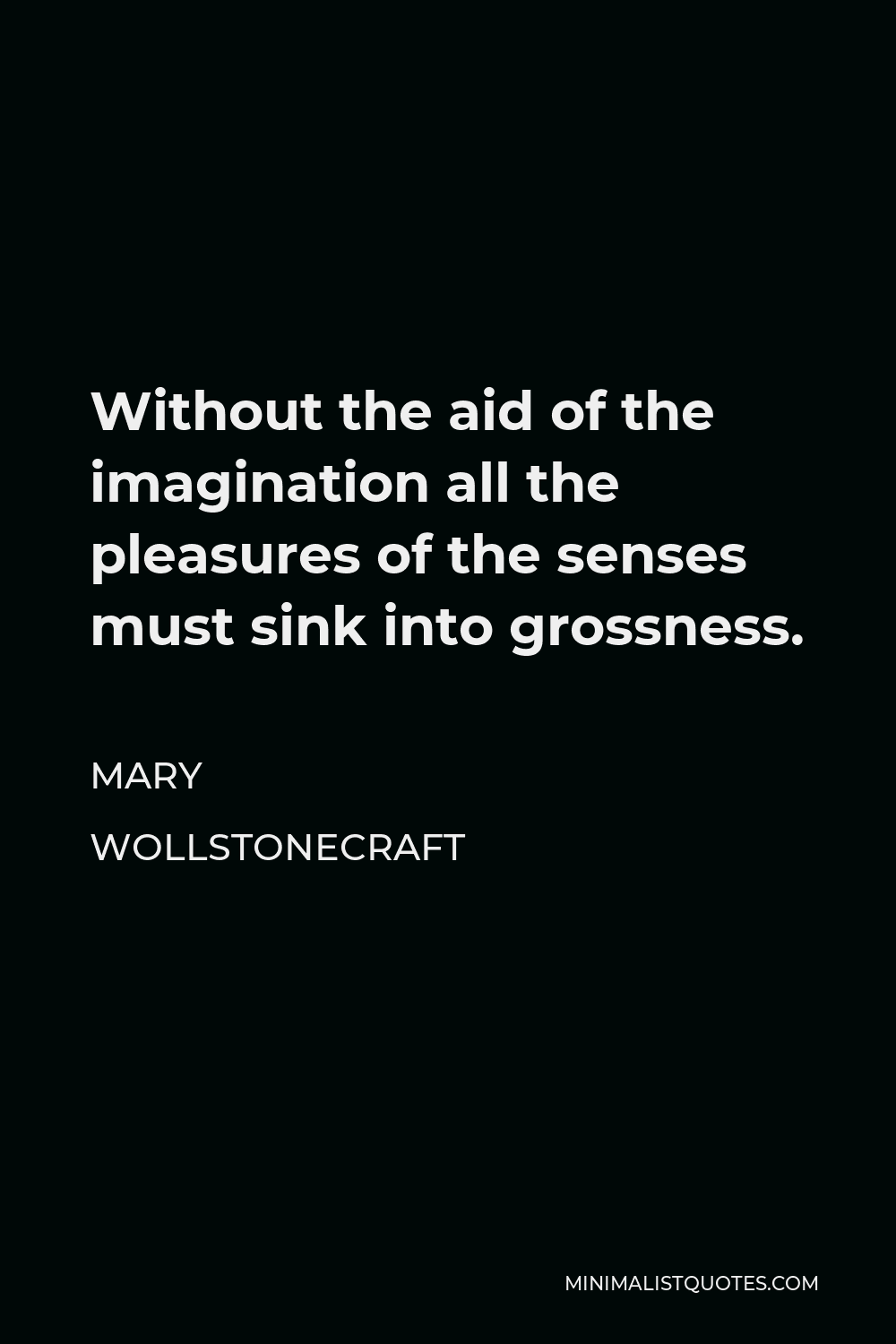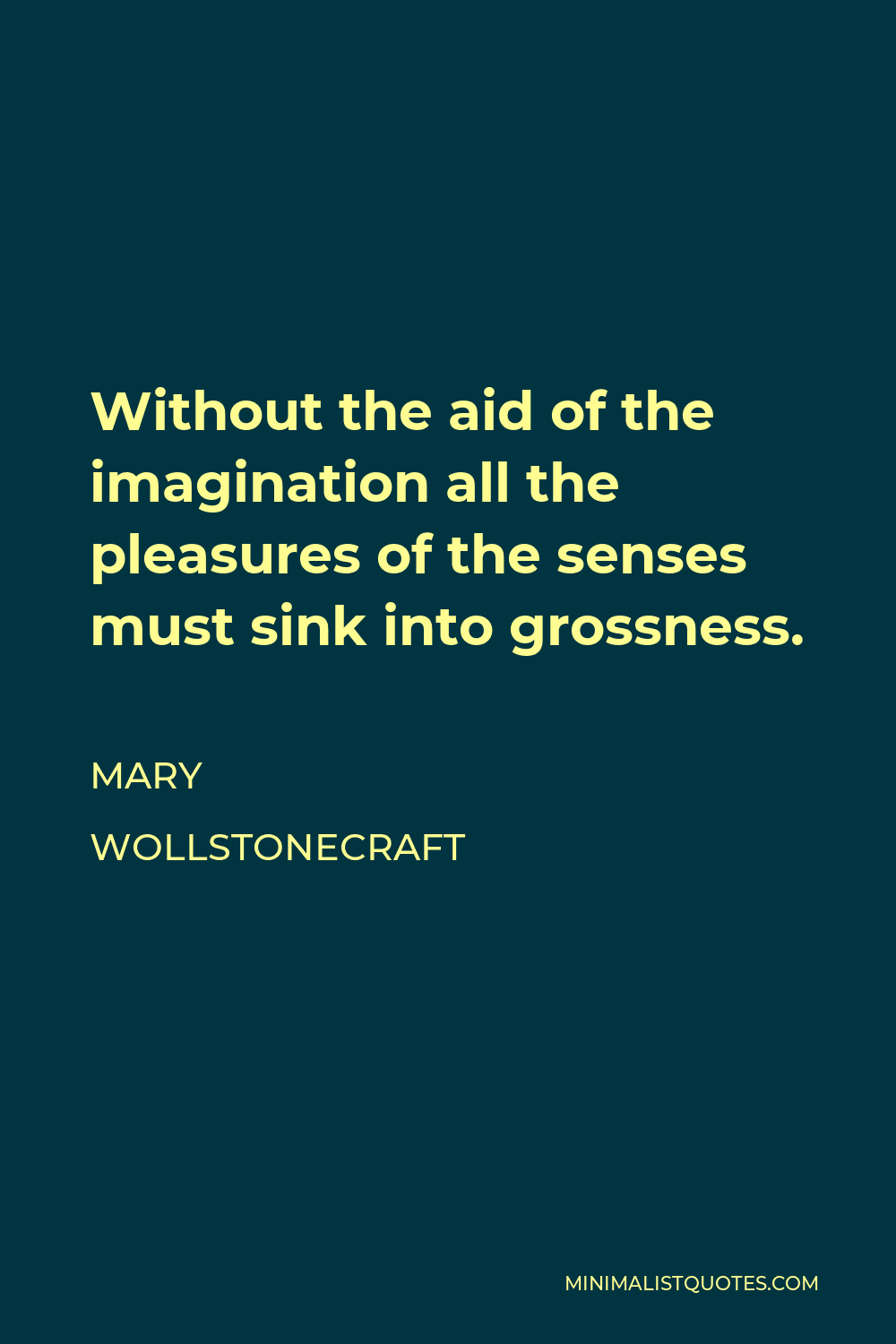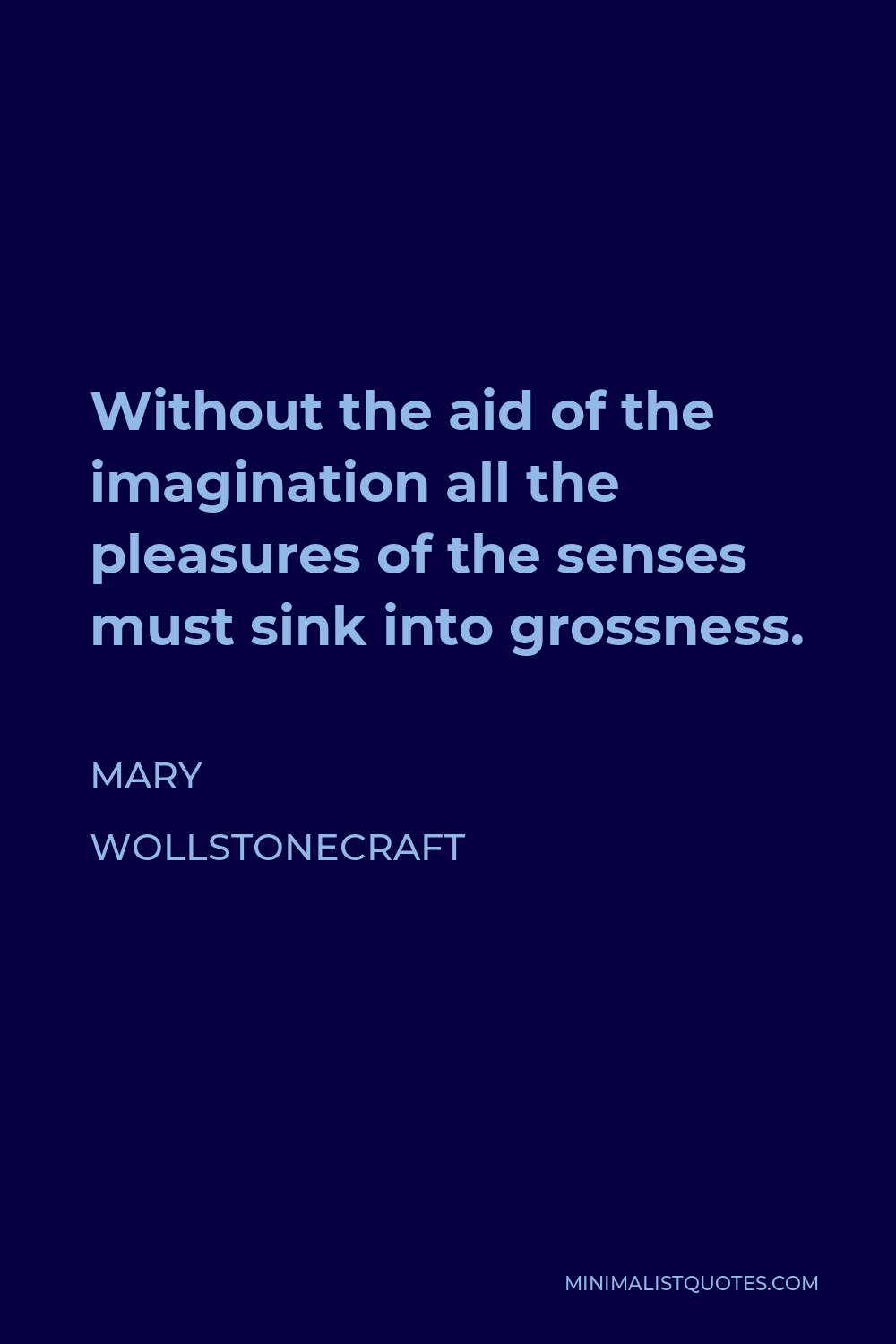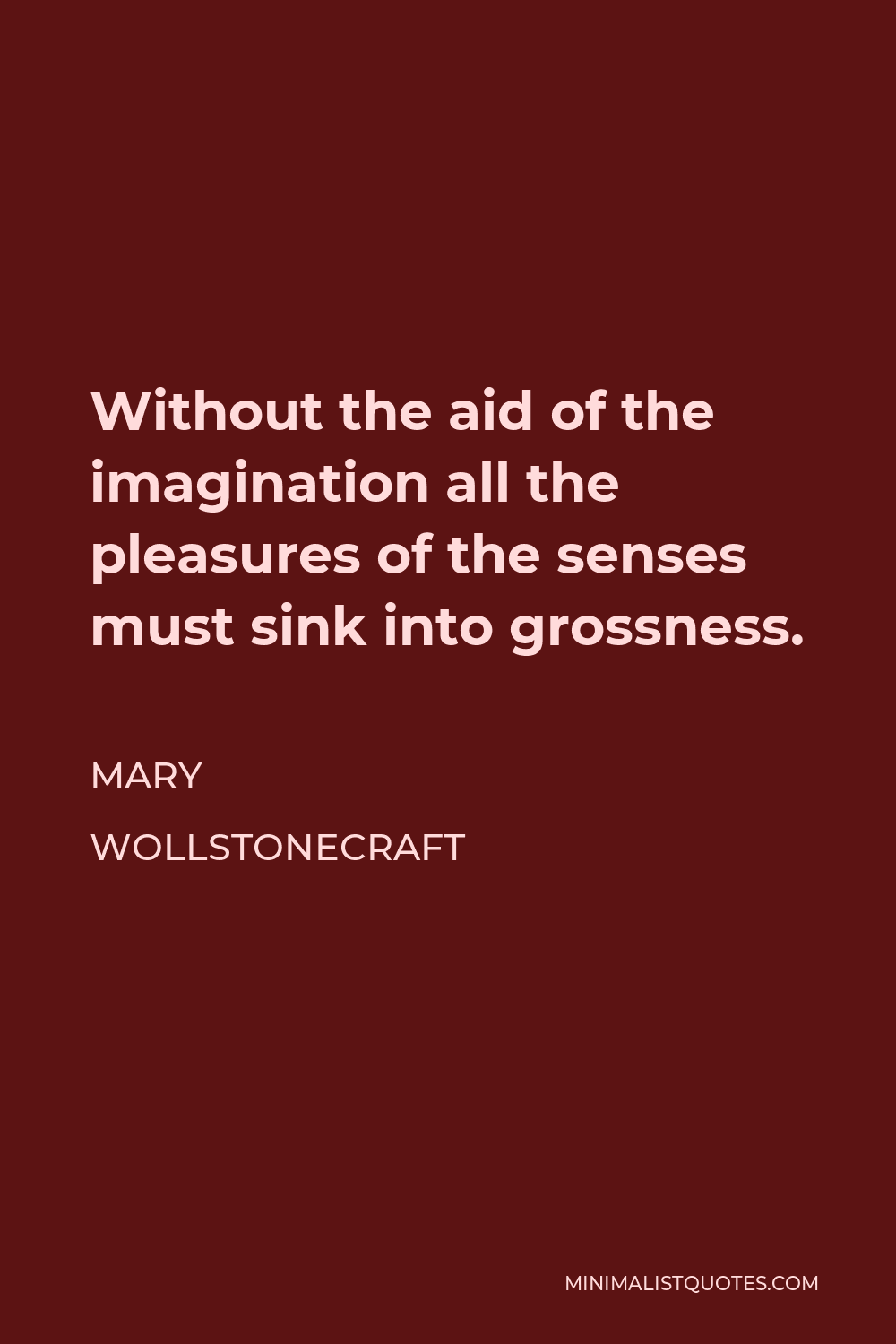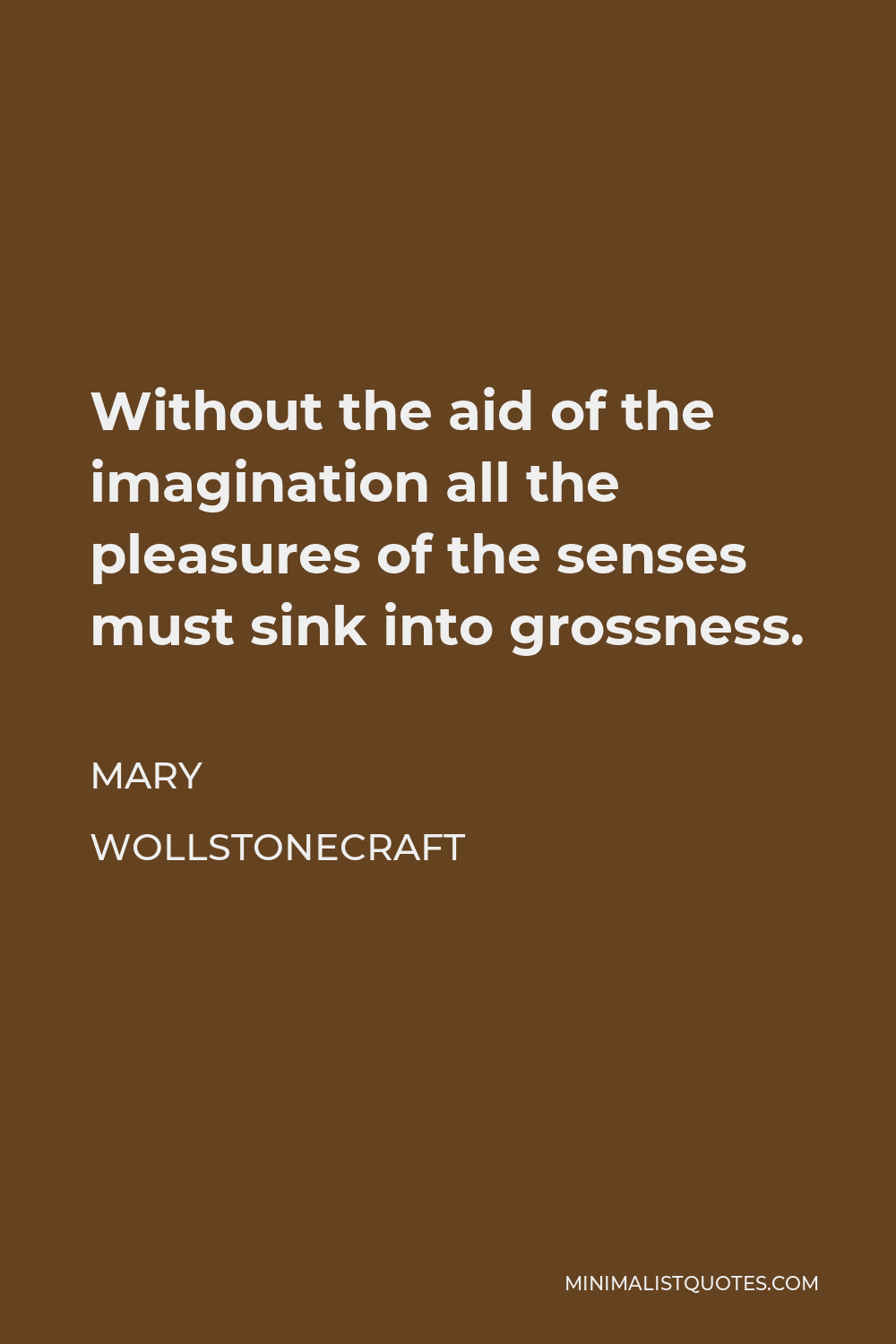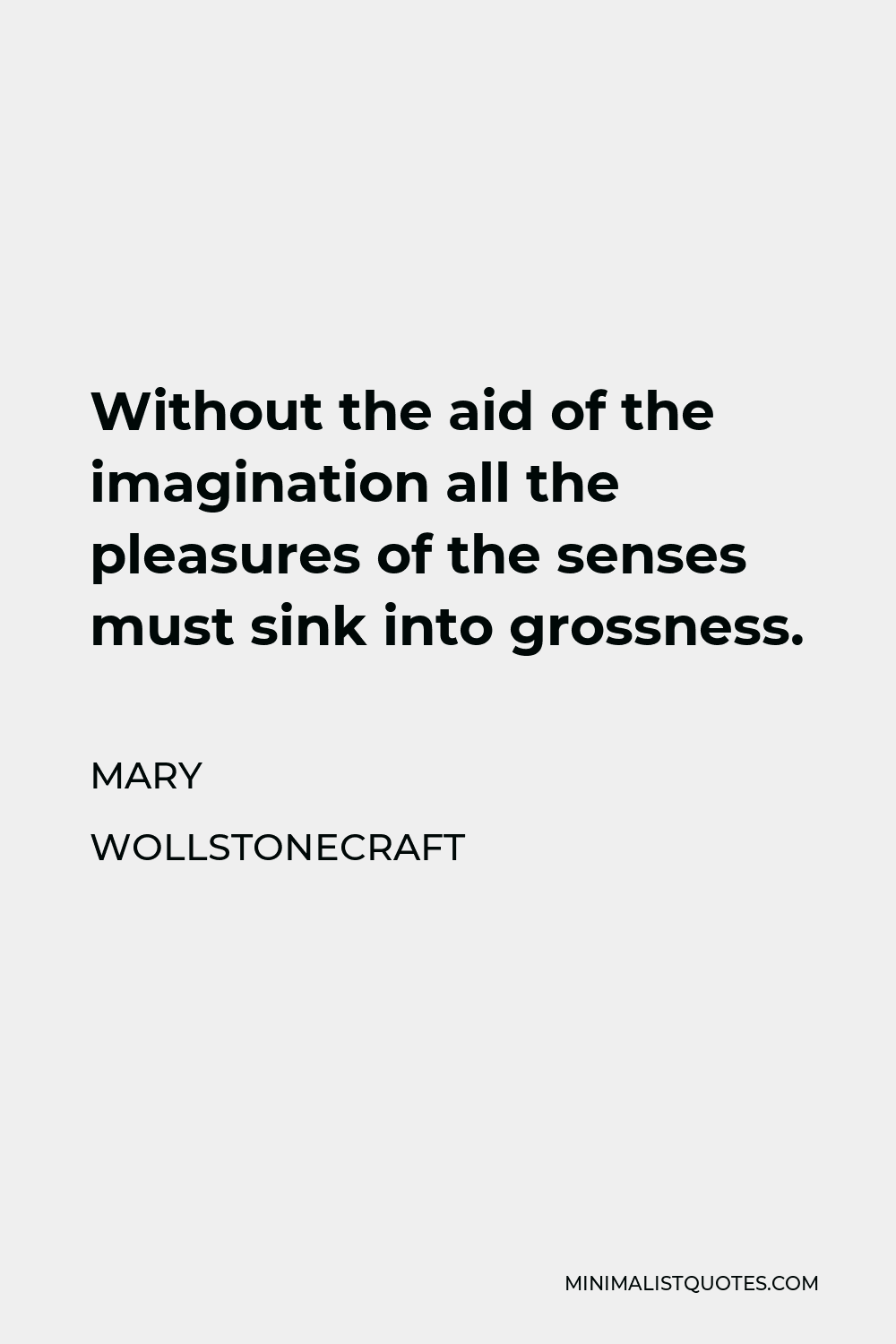Still the men stand up for the dignity of man, by oppressing the women.
MARY WOLLSTONECRAFTWithout the aid of the imagination all the pleasures of the senses must sink into grossness.
More Mary Wollstonecraft Quotes
-







-







The man who had some virtue whilst he was struggling for a crown, often becomes a voluptuous tyrant when it graces his brow.
MARY WOLLSTONECRAFT -





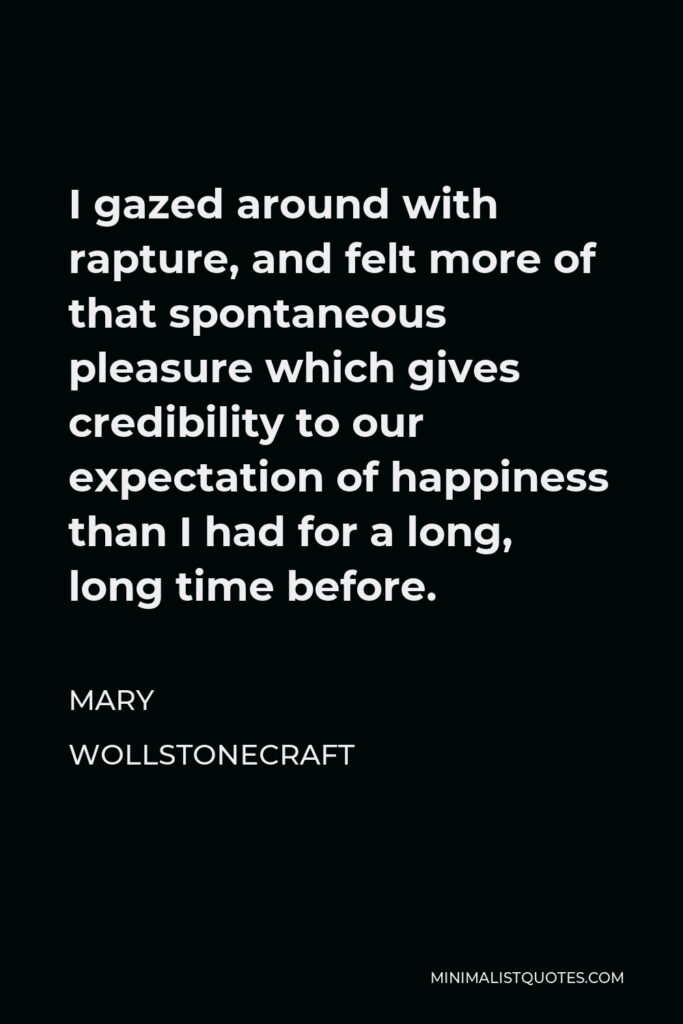

I gazed around with rapture, and felt more of that spontaneous pleasure which gives credibility to our expectation of happiness than I had for a long, long time before.
MARY WOLLSTONECRAFT -







Strengthen the female mind by enlarging it, and there will be an end to blind obedience.
MARY WOLLSTONECRAFT -







The being who patiently endures injustice, and silently bears insults, will soon become unjust, or unable to discern right from wrong.
MARY WOLLSTONECRAFT -





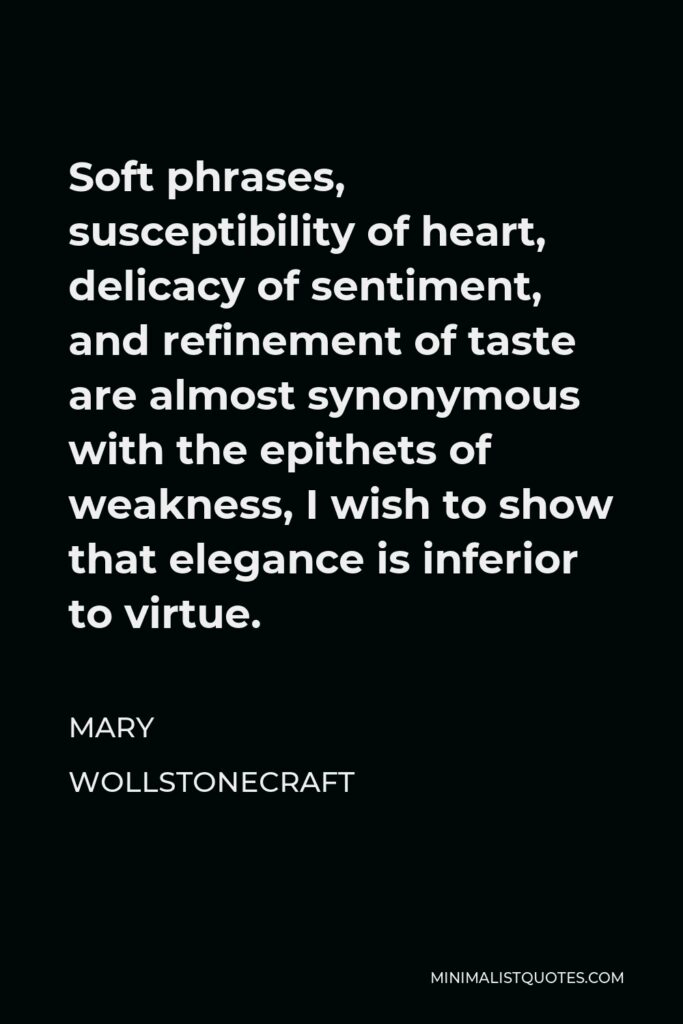

Soft phrases, susceptibility of heart, delicacy of sentiment, and refinement of taste are almost synonymous with the epithets of weakness, I wish to show that elegance is inferior to virtue.
MARY WOLLSTONECRAFT -





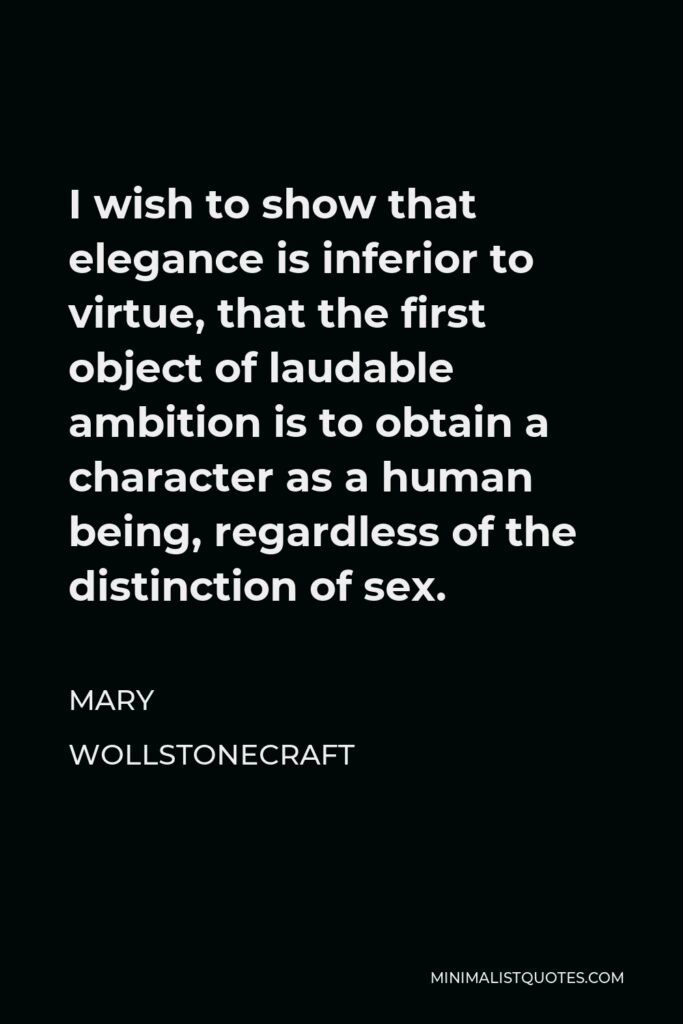

I wish to show that elegance is inferior to virtue, that the first object of laudable ambition is to obtain a character as a human being, regardless of the distinction of sex.
MARY WOLLSTONECRAFT -







Taxes on the very necessaries of life, enable an endless tribe of idle princes and princesses to pass with stupid pomp before a gaping crowd, who almost worship the very parade which costs them so dear.
MARY WOLLSTONECRAFT -







Few, I believe, have had much affection for mankind, who did not first love their parents, their brothers, sisters, and even the domestic brutes, whom they first played with.
MARY WOLLSTONECRAFT -





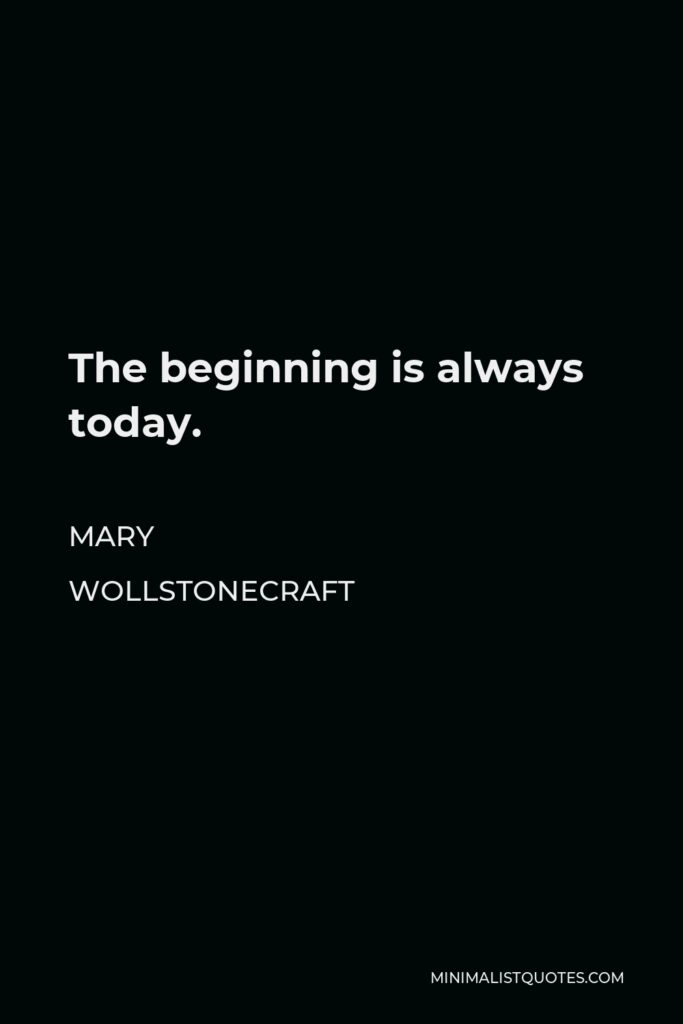

The beginning is always today.
MARY WOLLSTONECRAFT -







Every glance afforded colouring for the picture she was delineating on her heart.
MARY WOLLSTONECRAFT -







I do not wish them women to have power over men; but over themselves.
MARY WOLLSTONECRAFT -







I never wanted but your heart-that gone, you have nothing more to give.
MARY WOLLSTONECRAFT -





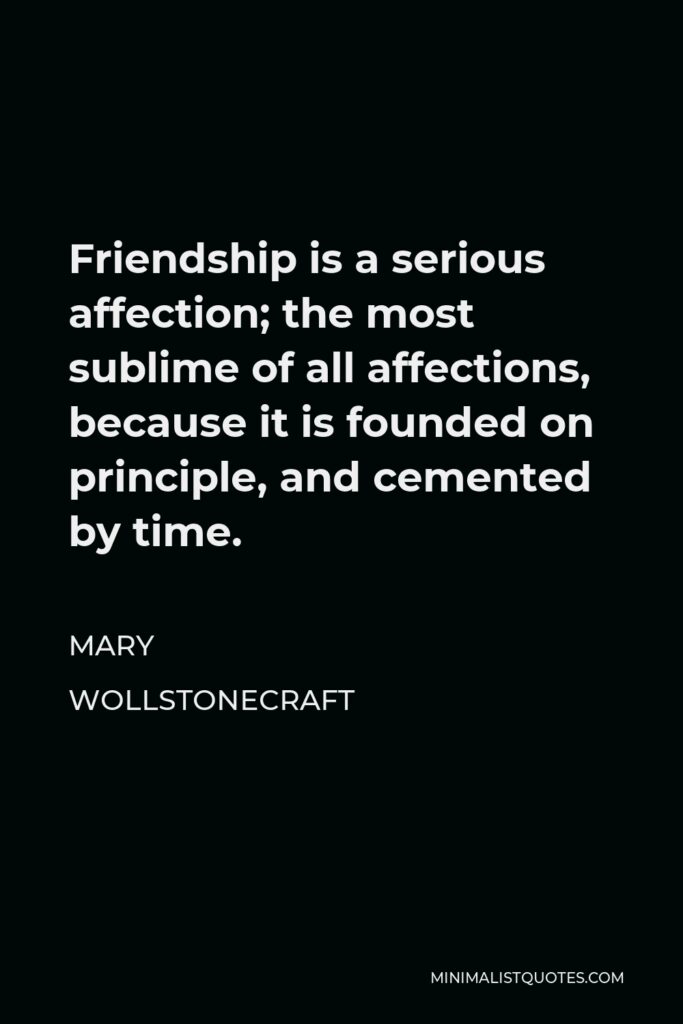

Friendship is a serious affection; the most sublime of all affections, because it is founded on principle, and cemented by time.
MARY WOLLSTONECRAFT -







If then women are not a swarm of ephemeron triflers, why should they be kept in ignorance under the specious name of innocence?
MARY WOLLSTONECRAFT -





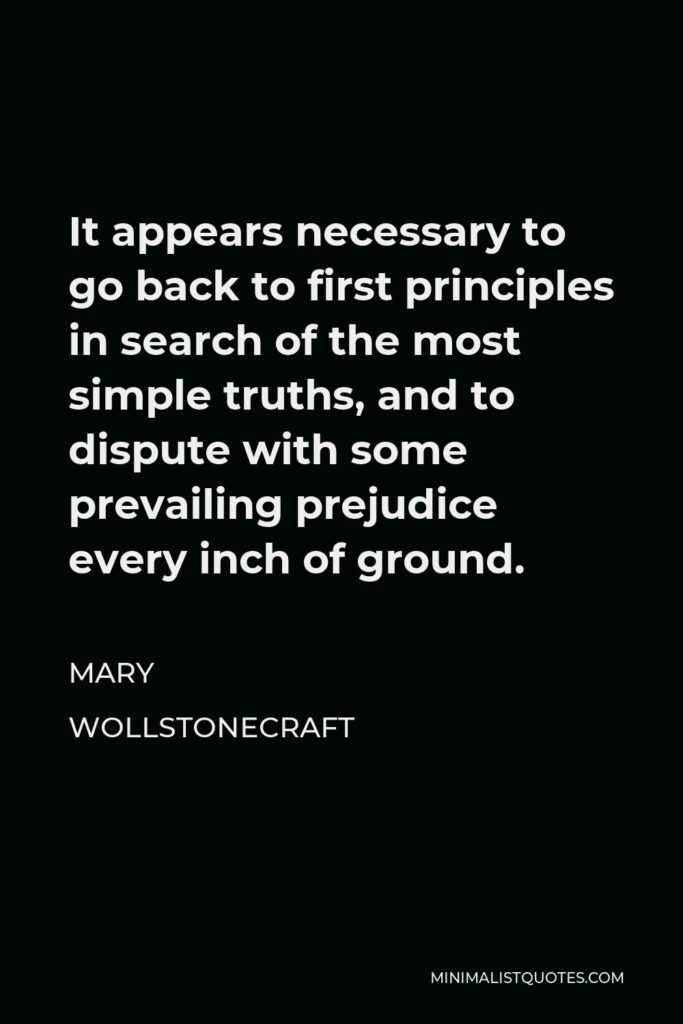

It appears necessary to go back to first principles in search of the most simple truths, and to dispute with some prevailing prejudice every inch of ground.
MARY WOLLSTONECRAFT
